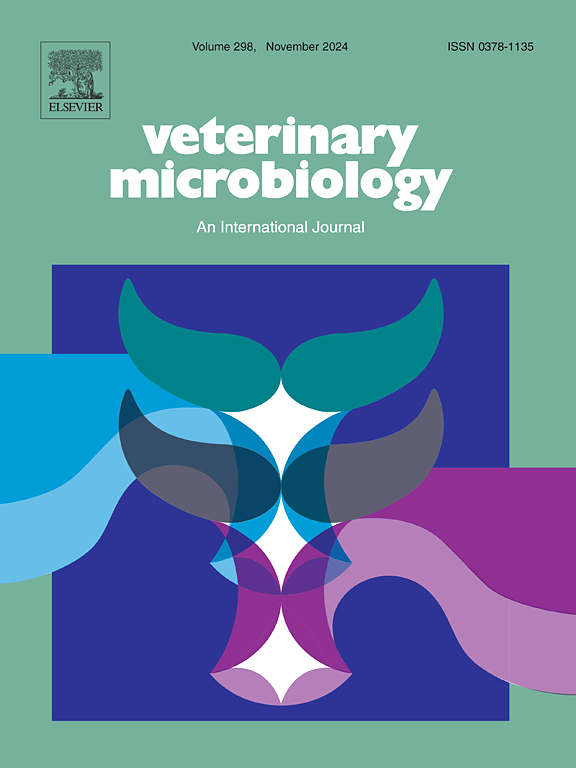JEV NS1' protein enhances cell-to-cell viral spread by inducing the formation of tunneling nanotubes
IF 2.4
2区 农林科学
Q3 MICROBIOLOGY
引用次数: 0
Abstract
Japanese encephalitis virus (JEV), a mosquito-borne virus, can infect various host cells. However, the efficiency with which JEV spreads from cell to cell remains unclear. This study demonstrates that JEV infection can induce the formation of tunneling nanotubes (TNTs), which is mediated by the viral NS1' protein. Further investigations revealed that NS1' protein induces TNTs formation by interacting with PAK1. The establishment of TNTs facilitates the transport of JEV virions and the NS1' protein, thereby evading neutralization by antibodies. In conclusion, our study elucidates the mechanism through which JEV induces the formation of TNTs in host cells and highlights a novel pathway for JEV intercellular spread.
JEV NS1蛋白通过诱导隧道纳米管的形成促进病毒在细胞间的传播
日本脑炎病毒(JEV)是一种蚊媒病毒,可感染多种宿主细胞。然而,乙脑病毒在细胞间传播的效率尚不清楚。本研究表明,乙脑病毒感染可诱导隧道纳米管(TNTs)的形成,而TNTs是由病毒NS1'蛋白介导的。进一步研究发现NS1'蛋白通过与PAK1相互作用诱导TNTs的形成。TNTs的建立促进了乙脑病毒粒子和NS1'蛋白的运输,从而避免了抗体的中和。总之,我们的研究阐明了乙脑病毒诱导宿主细胞形成tnt的机制,并揭示了乙脑病毒细胞间传播的新途径。
本文章由计算机程序翻译,如有差异,请以英文原文为准。
求助全文
约1分钟内获得全文
求助全文
来源期刊

Veterinary microbiology
农林科学-兽医学
CiteScore
5.90
自引率
6.10%
发文量
221
审稿时长
52 days
期刊介绍:
Veterinary Microbiology is concerned with microbial (bacterial, fungal, viral) diseases of domesticated vertebrate animals (livestock, companion animals, fur-bearing animals, game, poultry, fish) that supply food, other useful products or companionship. In addition, Microbial diseases of wild animals living in captivity, or as members of the feral fauna will also be considered if the infections are of interest because of their interrelation with humans (zoonoses) and/or domestic animals. Studies of antimicrobial resistance are also included, provided that the results represent a substantial advance in knowledge. Authors are strongly encouraged to read - prior to submission - the Editorials (''Scope or cope'' and ''Scope or cope II'') published previously in the journal. The Editors reserve the right to suggest submission to another journal for those papers which they feel would be more appropriate for consideration by that journal.
Original research papers of high quality and novelty on aspects of control, host response, molecular biology, pathogenesis, prevention, and treatment of microbial diseases of animals are published. Papers dealing primarily with immunology, epidemiology, molecular biology and antiviral or microbial agents will only be considered if they demonstrate a clear impact on a disease. Papers focusing solely on diagnostic techniques (such as another PCR protocol or ELISA) will not be published - focus should be on a microorganism and not on a particular technique. Papers only reporting microbial sequences, transcriptomics data, or proteomics data will not be considered unless the results represent a substantial advance in knowledge.
Drug trial papers will be considered if they have general application or significance. Papers on the identification of microorganisms will also be considered, but detailed taxonomic studies do not fall within the scope of the journal. Case reports will not be published, unless they have general application or contain novel aspects. Papers of geographically limited interest, which repeat what had been established elsewhere will not be considered. The readership of the journal is global.
 求助内容:
求助内容: 应助结果提醒方式:
应助结果提醒方式:


